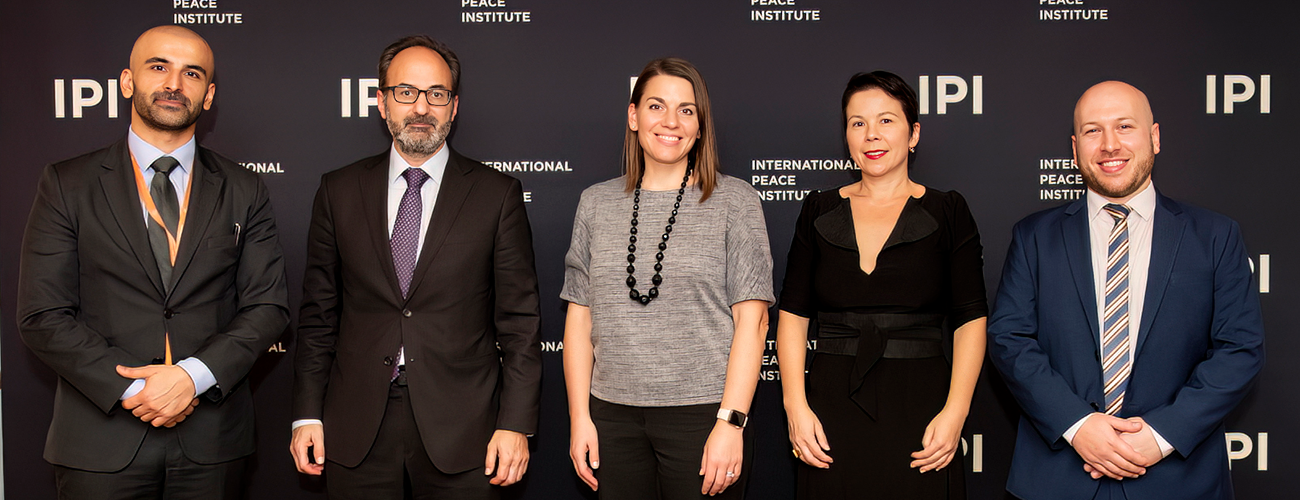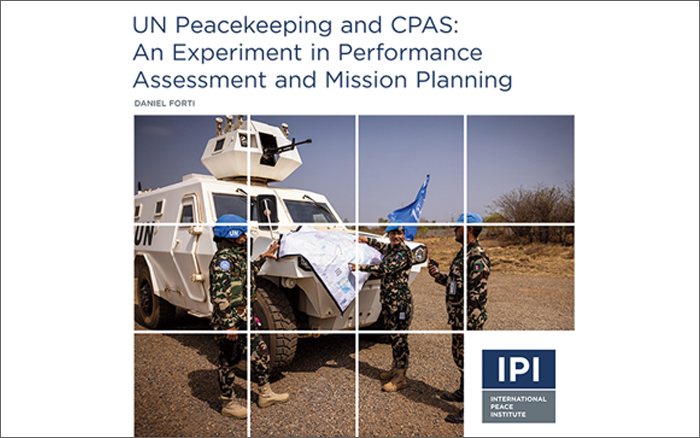Five years after its inception, the Comprehensive Planning and Performance Assessment System (CPAS) has evolved from a pilot project into a system for bringing together planning and performance assessment in iterative cycles in all United Nations (UN) peacekeeping operations. CPAS supports multiple Action for Peacekeeping Plus (A4P+) priorities, including strategic and operational integration, and performance and accountability of peacekeepers. CPAS is also at the forefront of UN Peacekeeping’s embrace of technology and the integration of system-wide data for improved mandate delivery.
CPAS has emerged as one of the flagship vehicles through which the UN can better demonstrate the impact of its peacekeeping missions and improve their performance. The system allows missions to set out a framework that details how their operations influence stakeholders and processes in the country and helps missions assess, based on data, whether and how they make progress against mandated priorities. At present, peacekeeping operations have used CPAS to conduct thirty performance assessments since 2018, which have generated over 300 recommendations aimed at improving their operations and refining their planning.
In this context, IPI and the Permanent Mission of the Kingdom of the Netherlands to the UN, in partnership with the UN Department of Peace Operations, cohosted a policy forum assessing the rollout, implementation, and impact to date of CPAS in UN peacekeeping on October 27th.
Panelists highlighted CPAS’s progress and challenges as a tool for mission-wide impact assessment, strategic planning, and integration. Daniel Forti, Research Fellow at IPI’s Brian Urquhart Center for Peace Operations, described CPAS as an “ambitious, imperfect, and worthwhile experiment for UN peacekeeping.” Interventions also reflected on CPAS’s trajectory over the coming months and offer recommendations to sustain the system’s future, particularly in considering the current geopolitical context of UN peacekeeping.
The policy forum launched an IPI publication on UN peacekeeping and CPAS, written by Daniel Forti. This event and publication are part of IPI’s broader workstream on A4P+, funded by the Kingdom of the Netherlands. DPO’s Division for Performance, Evaluation and Training also shared its own internal lessons-learned study on CPAS at the event.
Welcome and Opening Remarks:
Jenna Russo, Director of Research and Head of the Brian Urquhart Center for Peace Operations, International Peace Institute
Djeyhoun Ostowar, Deputy Head of Political Section, Mission of the Kingdom of the Netherlands to the UN
David Haeri, Director of the Division of Policy, Evaluation and Training, UN Department of Peace Operations
Speakers:
Daniel Forti, Research Fellow, Brian Urquhart Center for Peace Operations, International Peace Institute
Major General Patrick Gauchat, Head of Mission and Chief of Staff, UN Truce Supervision Organization (via VTC)
Souleymane Thioune, Chief of Staff, UN Multidimensional Stabilization Mission in the Central African Republic (via VTC)
Kym Taylor, Chief of the Evaluations Team, Division of Policy, Evaluation and Training, UN Department of Peace Operations
Closing Remarks:
Jenna Russo, Director of Research and Head of the Brian Urquhart Center for Peace Operations, International Peace Institute









